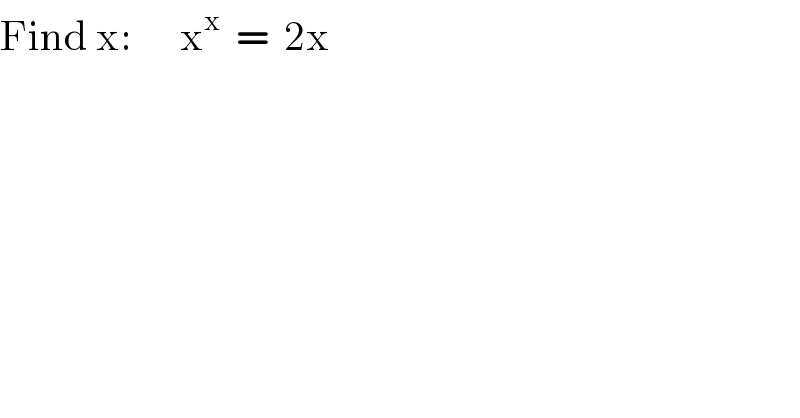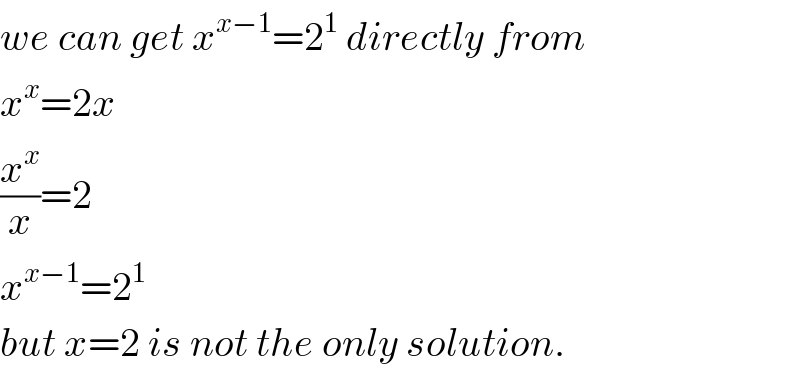
Question and Answers Forum
Question Number 60946 by Tawa1 last updated on 27/May/19

Commented by Prithwish sen last updated on 27/May/19

Commented by mr W last updated on 28/May/19

Commented by Tawa1 last updated on 28/May/19

Commented by mr W last updated on 28/May/19

Answered by meme last updated on 27/May/19

Commented by mr W last updated on 27/May/19

Commented by Tawa1 last updated on 28/May/19

Commented by mr W last updated on 28/May/19

Commented by kaivan.ahmadi last updated on 28/May/19

Commented by mr W last updated on 29/May/19

Answered by meme last updated on 27/May/19

Commented by JDamian last updated on 27/May/19

Answered by MJS last updated on 27/May/19
![f(x)=x^x −2x f(0)=1 [because lim_(x→0) f(x)=1] f(1)=−1 f(2)=0 f(3)=21 ⇒ there must be a zero in [0; 1], approximating we find x≈.346323 and of course x=2 is the other solution](Q60970.png)
Commented by Tawa1 last updated on 28/May/19

